Caring for Invisible Wounds, Speaking Out for Unheard Voices
From the Executive Director
Caring for Invisible Wounds, Speaking Out for Unheard Voices
Before going to medical school, I did a bachelor’s degree in psychology. This instilled in me the principle that people do not only need doctors and nurses to treat their physical ailments, but they also need support to recover from psychological trauma. MSF’s mental health support and its paramount importance during humanitarian crisis is the overarching theme of this edition of Borderline.
Through working with MSF, very often in emergency situations, I have seen people who have lived through the horrors of armed conflict, natural disasters and epidemics suffer from severe psychological consequences. It is in this light that MSF’s medical humanitarian action goes beyond ensuring people’s physical wellbeing. Mental health professionals are there to listen, support, and provide care, so that traumatic experiences do not come to define their lives.
Sadly, there are times when MSF is not allowed to offer such critically-needed assistance. Having provided psychological and psychiatric services to asylum seekers, refugees, and the local community in Nauru for nearly one year, MSF was forced to leave the country with just 24-hour notice. Our team who worked on this remote Pacific island witnessed an alarming number of suicide attempts and incidents of self-harm, indicating that the mental health situation of those being held indefinitely is ‘beyond desperate’. MSF calls for the immediate evacuation of those asylum seekers and refugees who have no voice, hope or protection, and for the end of the cruel, inhumane and degrading offshore detention policy of the Australian government.
We also want to give voice to people whose suffering is rarely covered by the mainstream media. This issue’s Cover Story features the elderly trapped in conflict in Ukraine, the children and adolescents attempting repeatedly to leave Eritrea for a better future, and the victims of sexual violence in Central African Republic. Providing mental healthcare in many of these places is not straightforward, particularly when violence and trauma maybe ongoing, or language and cultural barriers may prevent people from seeking support. My colleague Guleed, MSF – Hong Kong Psychosocial Focal Point speaks about our challenges and solutions; together with Rangi, our Indonesian medical doctor recently returned from mission, they highlight the importance of the mental health of our staff.
Since March this year, weekly demonstrations in Gaza in the Occupied Palestinian Territory have been met with lethal force by the Israeli army. At a time of escalating violence, the Photo Story exposes a collective and transgenerational mental health crisis faced by the Palestinians in the West Bank, and their diminishing ability to cope with this.
It is encouraging to see that in our home societies, the general public has recognised the need of caring for the invisible wounds. MSF will continue to bring to your attention those voices from afar: please, hear their pleas.
Dr. Natasha Reyes
Interim Executive Director, MSF – Hong Kong
Pain Beyond Physical Wounds
Cover Story
Pain Beyond Physical Wounds
Worldwide, one in four people suffer from some kind of mental health disorders during their lifetime, however, 60percent of sufferers do not seek help. These figures increase dramatically when factors such as violence, persecution, the need to flee, or disasters are added.
There is a growing recognition globally on the need to provide mental healthcare. But reaching out to people caught in humanitarian crises is much needed. They are especially prone to depression, anxiety, and other mental health disorders.
In 1998, MSF formally recognized the importance of providing mental healthcare as part of its emergency work. In the past decade, MSF conducted 1,786,406 individual mental health consultations and 285,118 group sessions. Last year, mental healthcare formed a key component of medical services in over 70% of the countries where we worked.
Trapped in Conflict with Loneliness and Trauma
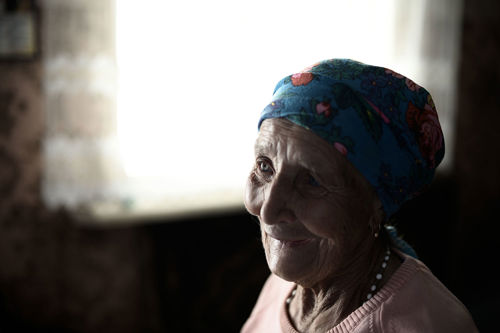
“October 2015 was the worst month of my life. There were shootings and explosions all around my house. I remember hiding in my back room and getting horrible news. My neighbour ran in, and told me that my son was badly injured by shrapnel. He died in front of me. I was helpless. After my son’s death, my nerves were destroyed. I was shaking a lot. I couldn't eat. He was my helper, my everything.
My sister has asked me to leave Opytne. But it's my home. My son and husband are buried here. I cannot leave them. I’d rather die here than anywhere else. I've been visiting the MSF clinic for treatment with my nerves and high blood pressure. Before my son’s death, I didn't have such problems.”
Four years of conflict have severely altered the lives of people living in eastern Ukraine. Over a million people have been forced from their homes. Partially-abandoned villages are mostly home to elderly people living in isolation, who are struggling with rising prices yet insufficient pensions. Many are in desperate need of medical care to treat chronic diseases, and psychological support to help them cope with stress and loneliness. MSF runs mobile clinics in 28 locations across the Donetsk region, providing primary healthcare and mental health consultations. The team also supply medical facilities with drugs and equipment and conducts mental health support training for teachers and government healthcare professionals still living or working in the conflict zone.
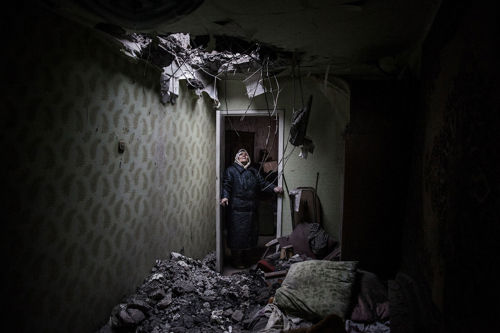
Bitter Memories of Dangerous Journeys
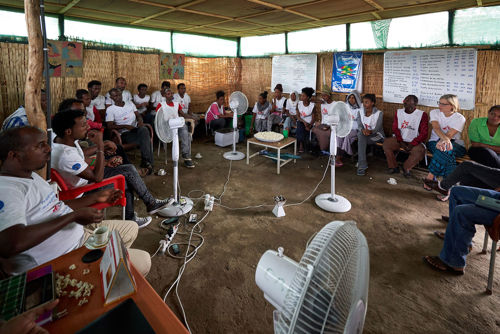
Ephraim was only 14 when he first attempted to leave Eritrea. Like many others, he tried to reach Libya, but was caught, jailed and beaten along the way. He was sent back to Eritrea, where he was thrown in a military prison. Since then, he started to have severe stress and repeated nightmares. He stopped eating and isolated himself. Finally, the military called his mother.
Three years later, and after several other attempts, Ephraim managed to reach Ethiopia. He brought few physical possessions, but came burdened with anxiety and post-traumatic stress disorder resulting from torture, violence and abuse he had faced in the past years.
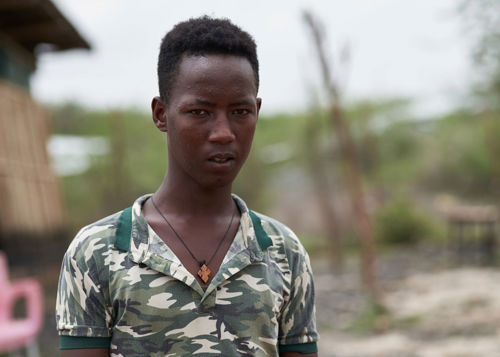
“When my mother realised that I wasn’t doing well, she took me to the holy water for seven days. That’s our traditional remedy for mental health conditions. My symptoms persisted. The only thing I could think about was how to escape again. After two weeks, I tried to cross into Ethiopia again…Up until recently I still had nightmares. I couldn’t sleep and was feeling angry all the time.”
In northern Ethiopia, MSF mental health centre in Hitsats refugee camp offers counselling, inpatient and outpatient psychiatric care, and a wide range of therapeutic activities including therapeutic discussions and psycho-education. Around 40% of the camp population are children. Half of them have travelled alone or have been separated from their families.
Shattered Life
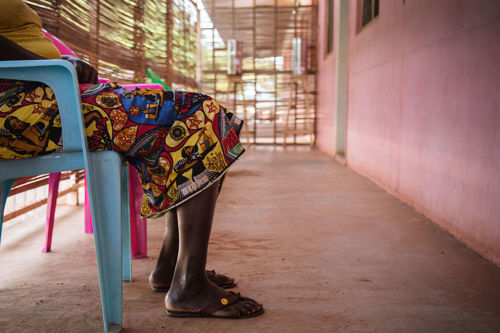
“My husband was killed by armed men, and I was taken prisoner. In their camp, the men raped me. I was held there for several days, and lost one of my children. Finally, I managed to send the other child out of the camp, and I fled too…After talking to the counsellor for some time, I feel a bit better. But it’s not easy, not easy at all.”
Tatiana’s voice was almost inaudible as she recalled what happened to her. Her story is not an isolated one. Sexual violence has been widely used as a weapon of war in Central African Republic, and civilians currently face another escalation of violence. Across the country, MSF treated 1,914 victims of sexual violence in the first six months of 2018. In Bangui, the country’s capital, MSF opened a specialised clinic to care for people being sexually assaulted. Since its opening in December 2017, nearly 800 patients have been treated. The majority are women, and a quarter are under the age of 18. Not only the medical team helps prevent sexually transmitted diseases and treat injuries or gynecological complications, but the psychologist also tries to reduce the impact of the aggression and alleviate the mental symptoms.
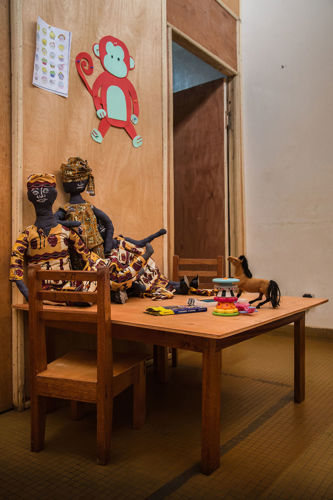
Guleed Dualeh: ‘Mental healthcare is about trust’
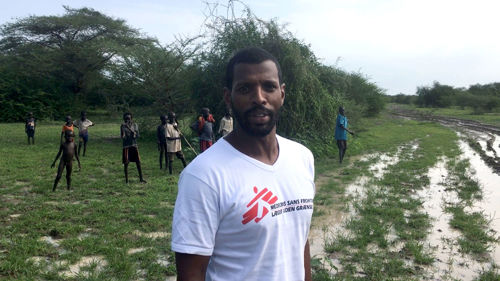
Physical wounds can be mended, yet mental injuries are hard to heal. That takes a long time, and requires people to be willing to share their stories. To Guleed Dualeh, MSF psychologist, mental health support is about communication, and communication cannot be established without trust.
Like other MSF psychologists, psychiatrists and counsellors, Guleed had to overcome different barriers and limitations for providing care. In 2015, he was on mission in Myanmar, providing psychological first aid for the displaced Rohingya with the support of a translator. ‘A visibly distressed woman explained her situation and experiences to our translator, talking for about 15 minutes in local language. In the end, the translator just gave me a one-sentence summary: “She is not doing well”. Obviously, the woman had said much more than that. But it appeared that our translator wasn’t comfortable to repeat her account. It’s worth highlighting that there could be a risk of vicarious trauma for the translator when interpreting another person’s story, as that might recall his own experience being from the place.’
Building trust with patients is another challenge. “They wouldn’t necessarily trust, and open up to a new face every month. That’s why MSF tries to send psychologists to the field for at least 6 months, unless they are there to conduct a needs assessment in which direct contact with patients is not required; we would also deploy psychologists to go on shorter missions toprovide psychological first aid in emergency situations.” Consistency and time is key in modelling the psychologist from a stranger to a trustworthy person. Another solution is building the capacity of staff recruited in the community. They are usually counsellors or lay counsellors. Sharing the same language, cultural background and experiences with the patients, they get connected with them easier. In addition, the psychologist has to ensure that all counsellors are listened to and no one is left behind.
Staff’s mental health is a critical element for MSF’s human resources management. Often away from home for long periods of time, working under enormous pressure and required to process the traumatic events, field workers need professional support and headspace. Guleed, who worked in three MSF missions, has been the Psychosocial Focal Point for MSF – Hong Kong since last year. He conducts systematic psychological briefing and debriefing for field workers before and after their assignment, and is working toward a network of regional psychologists for providing proximate support for field workers recruited from 13 territories in Asia.
Occupied Minds in West Bank, Palestine
Photo Feature
Occupied Minds in West Bank, Palestine
Since 30 March this year, the level of violence in Gaza in the Occupied Palestinian Territories has significantly escalated. Over 5,000 people have been injured. While a large proportion of Gazan patients treated by MSF suffer from gunshot wounds that could potentially cause life-changing disabilities, their peers in the West Bank continue to endure the lasting impact of the Israeli occupation on their mental health. “Every day, our teams work to support people suffering psychologically as a direct result of events related to the violence, including detention of relatives, violent home and school raids, house demolitions, killing of family members, searches at checkpoints, and day to day harassments by settlers and soldiers,” said Juan Carlos Ramos, MSF head of mission in Palestine.
In the West Bank city of Hebron, home to 215,000 Palestinians, MSF has been running mental health support programmes since 2001. This year alone, the teams have already provided over 6,400 people with individual or group counselling, psychotherapy, psychological first aid or psycho-educational support. The main symptoms seen among the patients include anxiety, sleeping problems, and feelings of sadness and fear. “Many of the people affected are teenagers and that will mark their adult life. At this age, they want freedom, moving around without constraints, and a future,”said Mervat Suboh, an MSF psychologist in Hebron.
Mental health problems, though prevalent in Palestine, remain a stigmatised topic. Raising awareness about the importance of mental health is therefore critical in encouraging the Palestinians to find support when needed.
Liberia: A holistic approach to treating severe mental illnesses
MSF Knowledge
Liberia: A holistic approach to treating severe mental illnesses
Treating severely disturbed people suffering from schizophrenia, bipolar disorder, severe depression, or post-traumatic stress disorder remains a challenge especially in low-income countries. MSF has developed a holistic approach that helps improve patients’ quality of life significantly.
In Liberia, it can be extremely difficult for people with severe mental health disorders to access effective treatment. As a result, both the patients and their families suffer.
“A 32-year-old psychotic patient had been chained for months when an MSF team first visited him. His family had put him in chains out of desperation, because they didn’t know what to do about his sometimes violent behaviour,” says Emmanuel Ballah, MSF mental health activity manager in Liberia.
Without medical treatment to address their symptoms, families who cannot afford to provide full-time care to a family member with mental health issues have to resort to extreme measures – chaining or tying up the patients, locking them at home, or leaving them at churches being physically restrained by other people.
To enhance mental health and epilepsy treatment in Liberia, MSF has developed a community-based model. Treatment and care is delivered in primary healthcare clinics, so people can come for medical consultation on their mental health condition, similar to any other health condition. Trained and supervised by experienced MSF mental health professionals, Liberian clinicians and nurses provide medications and carry out follow-ups to ensure adherence to treatment therapy.
“Through appropriate psychiatric evaluation, counselling and medication, we have helped that psychotic patient and his family manage his condition. The tragic and harmful practice is no longer needed.”continued Ballah.
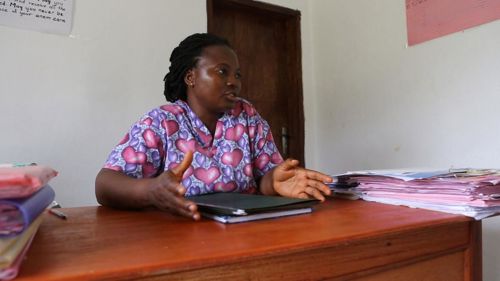
Moreover, community health workers actively look for people who otherwise might not be able to go to a clinic. For instance, one feature of schizophrenia is that patients can be so disabled that they are unable to turn up for an appointment. Often they have reduced insight into their disorder, and might struggle to accept medication even if it is offered.
Epilepsy is not technically considered a mental health disorder, but it can be quite debilitating. The MSF team saw an 18-year-old man who had epilepsy and a developmental disorder, with frequent seizures. He had never been to school because of his illness.
The community health workers identified this young man, gave education to his family about his condition, and brought him to the clinic. Stigma continues to be a major challenge for people with epilepsy, and they are sometimes misunderstood as posing risks to others. The community health workers have supported this young man, now seizure-free, to go to school, by helping teachers and students understand his condition. This illustrates how the community-based approach can make a big difference in individuals’ lives. In the case of this young man, his sense of purpose was restored, and his family was relieved.
MSF started the mental health and epilepsy programme in Liberia in September 2017. Currently, it is providing treatment to over 900 patients. MSF worked in Liberia from 1990 until 2009, and returned to the country in 2014 to respond to the Ebola epidemic. Today, MSF also runs a paediatric hospital in the capital Monrovia.
“It’s okay to NOT be okay”
Frontline Sharing
“It’s okay to NOT be okay”
Since the South Sudanese conflict broke out in 2013, 2.4 million civilians have left the country while another 2 million have been internally displaced. The United Nations has established six Protection of Civilians (PoCs) settlement sites in South Sudan for internally displaced people (IDPs). The largest PoC is in Bentiu, a refuge of nearly 115,000 IDPs.
MSF established a hospital in the Bentiu PoC in 2014. It has 160 beds and provides a range of services: emergency care, adult and pediatric inpatient care, nutritional treatment, TB/HIV treatment and care, maternal and neonatal care, care for victims of sexual violence, surgery and outreach activities.
In this hospital, I served as the medical doctor for the emergency room and nutrition in-patient department.
Malaria season
I arrived in Bentiu during the malaria season, the busiest time. The living conditions inside the PoC were very poor, increasing the risk of malaria infection.
In the emergency room, we treated an average of 200 patients per day, but in one trying day, we treated about 700 patients and all inpatient wards were full. There were also some complicated malaria cases.
I really enjoyed my mission in Bentiu. My South Sudanese colleagues were very hard working. I never heard them complain and they always tried their best to serve the people. They helped me communicate with the patients by translating what I was saying in the local language.
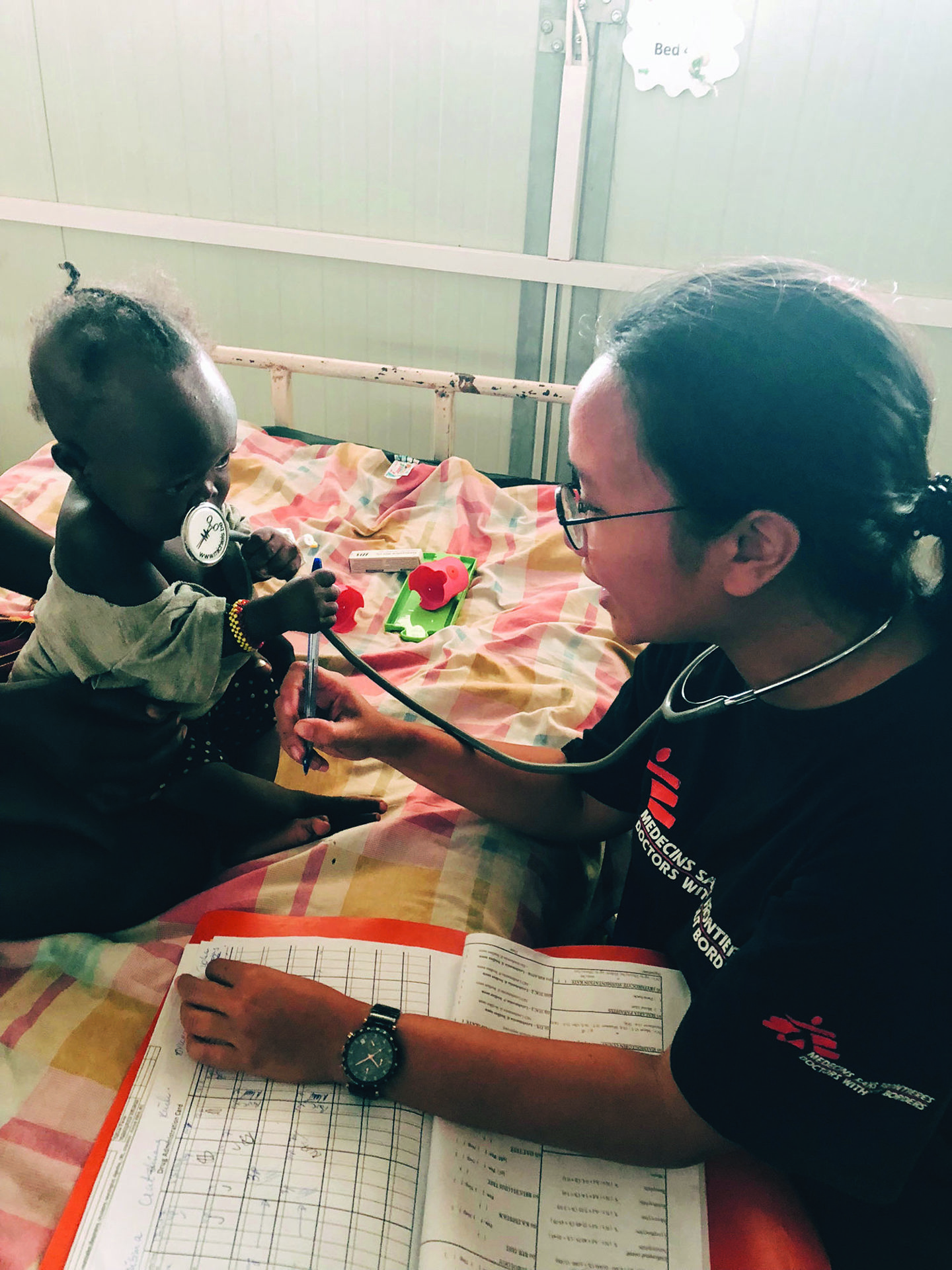
Taking a breather, for mental health
Even though I love this job, working under a lot of stress can affect the mental health of humanitarian aid workers. It's something that we need to acknowledge and deal with.
For me, I always take a breather when it gets hard. I have learned to be honest with myself at times when I need help.
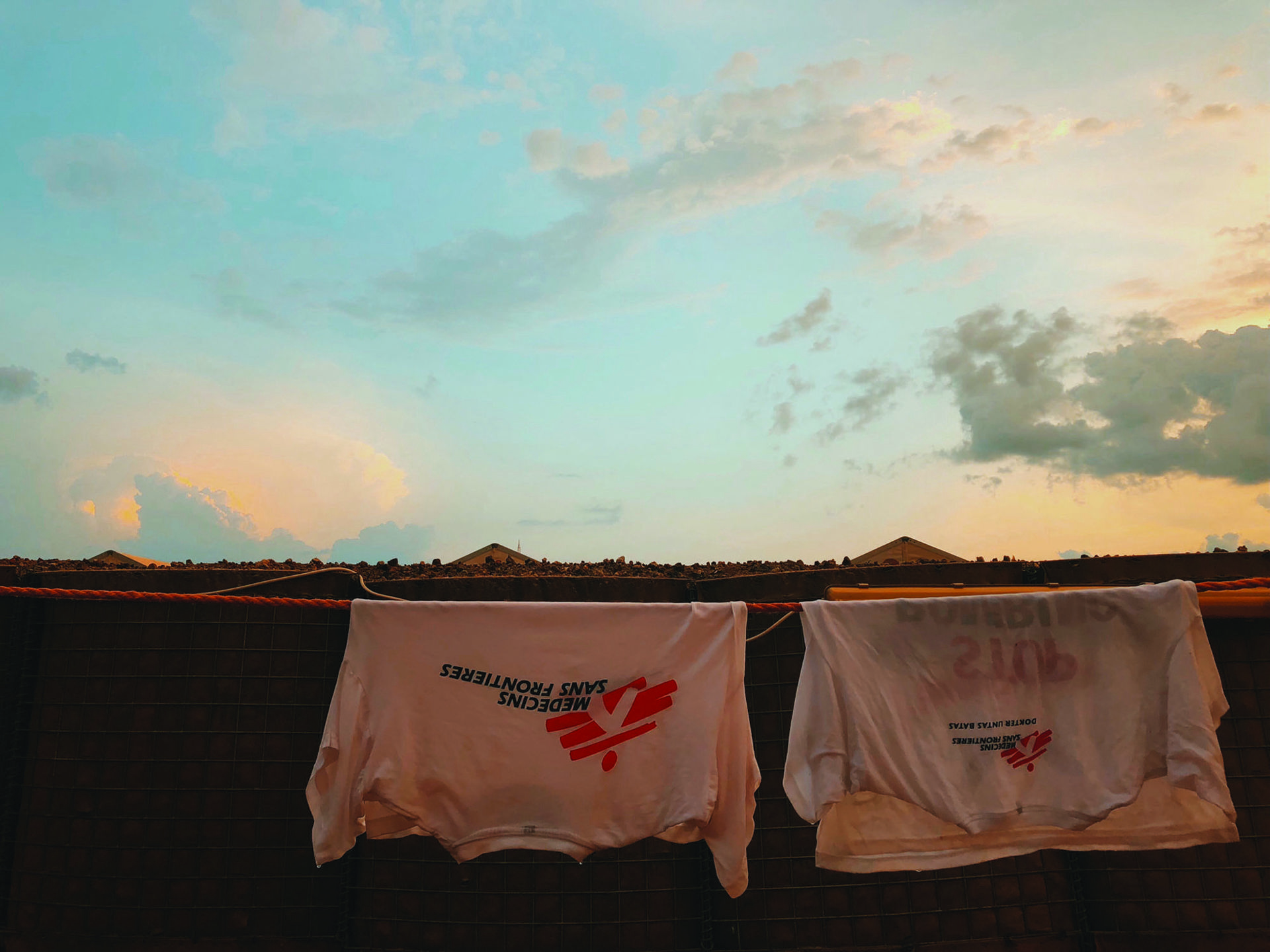
I de-stress by having a good rest, taking up hobbies, and talking to the people I love. I am lucky that I have a strong support system -my family and friends, and MSF. It is important to acknowledge that it's okay to not be okay.
A lot of people ask me what I miss most about being on mission. My answer is the same: people. At the end of the day, I sit in the hospital, drink tea with my colleagues, or play with the soon-to-be-discharged kids. I’ve learned a lot from them. It is through them that I’ve realised that my problems are miniscule compared to the hardships they’ve endured.
Dr. Rangi Wirantika Sudrajat is an Indonesian medical doctor who has been to four MSF missions in four years, including Pakistan and Yemen. She has recently returned from South Sudan.
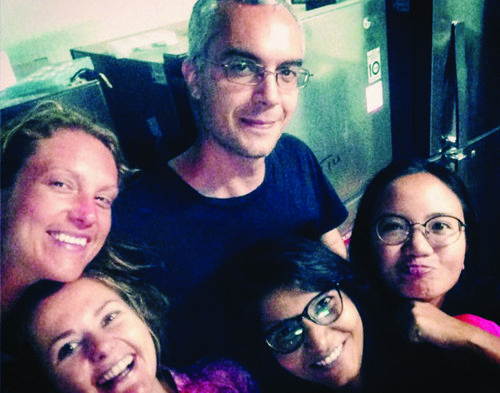
Love is Medicine
MSF-Hong Kong
Love is Medicine
An MSF field worker once said, ‘Love is as effective as medicines. It enables some patients to recover incredibly fast.’ This statement cannot be verified scientifically. Yet, there is some truth in it, as reflected in the stories from the front line.
Since Europe’s migration crisis unfolded, a lot of refugees and migrants have been stranded in Greece. Some of them have temporarily settled in a refugee camp set up in an abandoned spa hotel in Thermopylae. While providing mental health support, the MSF team met Khitam Sa’edi, 22, who has sought refuge there. Khitam boarded a boat after facing domestic violence for years, being beaten and threatened with death. In order to survive, she had no choice but to leave her two young children and her home country, Iraq. “I still can’t get over the fact that I’ve left my children. I cry whenever I think of them,” said Khitam.
Khitam’s destiny has changed, from the moment she met the 26-year-old Mohammad Al-Sudani on the same boat. Mohammad left Iraq because of religious persecution. Seeing Khitam on her own, Mohammad decided to look after her. “I just asked him for an air pump to fill my safety vest. No other idea occurred to me,” recalled Khitam, who is now Mohammad’s wife. At the age of 14, Khitam was forced into marriage, which brought massive physical and psychological trauma. Now, Khitam has found love in a hopeless place, and she firmly believes that he is the right one.
We find the kind of love we are looking for through experience. This also happens in affluent places like Hong Kong. “My wife and I were classmates in university. During those five years, we were very good friends. Having gone through some experiences respectively after graduation, we have realised that the most suitable and important one has always been there and it is each other,” said Angus. The couple decided to get married after dating for four years. Sharing the same occupation and similar values in life, Angus and his wife made a special arrangement in their wedding banquet – they donated the budget for wedding favours to MSF, and put a thank you card of the organisation on each of their guests’ seats.

“We are both medical workers, and know very well that medical training is tough. MSF field workers have to complete their training, accumulate work experience, and leave their stable job to deliver medical care to people in need. That’s really admirable,” said Angus. “Besides, while we were preparing for our wedding, we heard that MSF medical facilities were attacked. That further prompted us to support their work.” To Angus and his wife, ‘happiness’ is the least wasteful wedding favour. “We’ve noticed that many guests would forget about the gift. Or they would think the gift is not of use and leave it at the venue. It’s not only a waste of material, but also the effort of the bride and groom. So why not donate to MSF and share our happiness and blessings with people most in need?”
In the first eight months of 2018, 170 couples donated to MSF through the Wedding Favour Donation Campaign, instead of preparing traditional wedding favours for the guests on their special day. These donations enabled us to provide medical care independently, irrespective of race, religion, gender or political affiliation. “We respect MSF’s principles in delivering aid, and its decades of efforts in responding to medical humanitarian emergencies around the world. That’s why we decided to donate to the organisation,” said Jennifer, who got married in mid-2017.
Jennifer and her husband first met in Africa. Out of their concern about the disadvantaged communities, they participated in the same trip filming grassroots NGOs in several countries in the continent. Jennifer said, “Donating wedding favours corresponds to our personalities. It’s also well-received by our guests. What better way to celebrate our special moment than by sharing our love with those communities in need?” The love shared by these newlyweds supports people in distress to overcome their difficulties like Khitam who would probably take a long time to overcome the psychological trauma of leaving her children. But with the mental health support provided by MSF, she would gradually walk out of despair and build a family, even in hopelessness.
Interested couples please email to fundraising@hongkong.msf.org

